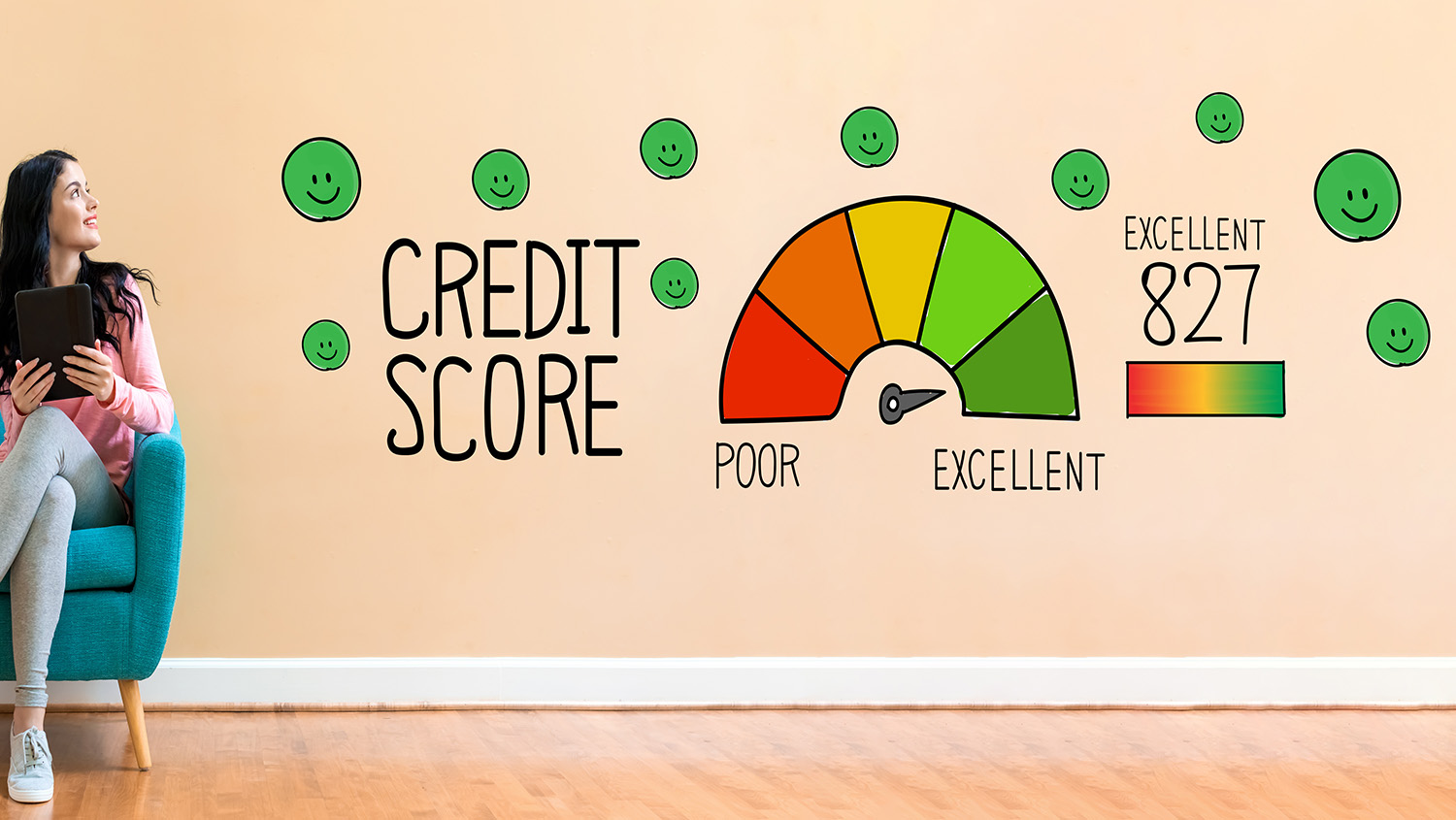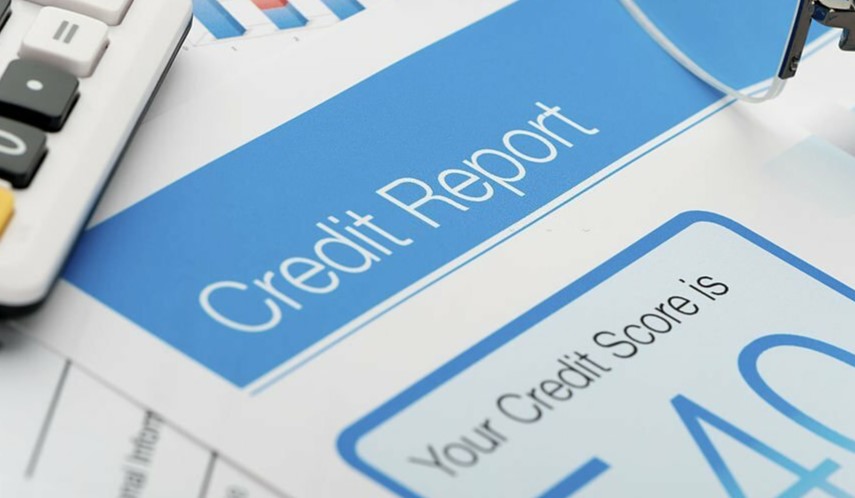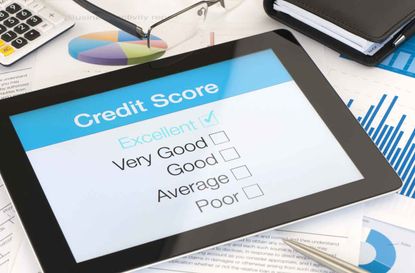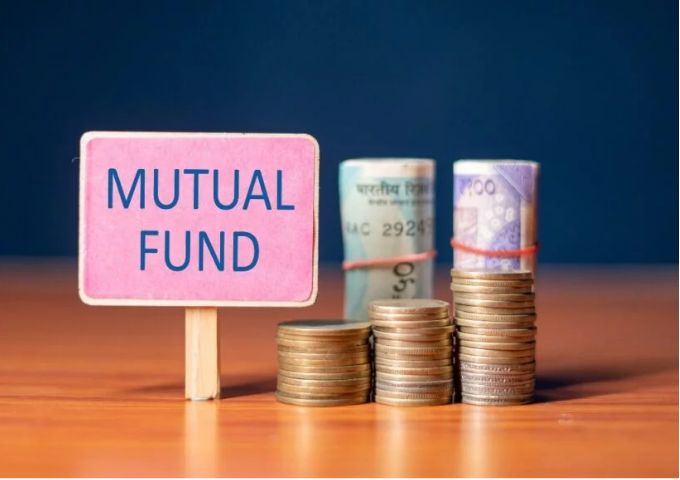How to Improve Your Credit Score Fast in Australia
If you are considering applying for a loan in Australia now or in the future, then you need a good credit score. Your credit score is what lenders look at before approving your request to borrow money.
Let us consider what a credit score means and how you can improve it if you are in Australia.
What does credit score mean?
A credit score is a numerical presentation on a scale between 300 to 850 that shows how likely you are to pay a loan back when given. It shows how credit-worthy you are.
Your credit score is determined and computed mathematically from the information in your credit report.
A higher loan will make it easier for you to get a loan while you may struggle to get lenders if your score is very low.
Factors that impact your credit score include bill payment history, current debt, how many loan accounts you have, new applications for credit etc.
Your credit score may differ depending on the data used and the scoring model used in the calculation.
According to Equifax, the average credit score among Australians is 855.These means on average Australians have good credit scores.
There are ways through which you can improve your credit fast if you are in Australia.
1. Check and understand your credit score
You can’t improve what you don’t know. Always check your credit score and make sure you understand it. The higher the number the better it is.
Apart from the score, you will also get a credit report. The credit report contains a 24 month history of loan repayments, information about your credit accounts, enquiries made by lenders about your account.
You should get your credit report from more than one reporting body as there can be some variations.
Also Read: Different Types of Business Loans you Should Know in Australia
2. Correct any errors
It is possible sometimes to find errors in your credit report. The mistake may be from credit providers or from credit reporting agencies. If you notice any error in your credit report, then get them corrected by contacting the agency that issued the report.
Make sure the credit report is for you by crosschecking personal details like name, date of birth and financial history.
Ensure all information about your finances are correctly stated, no duplication of debts, and amounts on debts are accurate.
3. Pay off all outstanding debts
Outstanding debts have the biggest impact on your credit score. You should fix this immediately by paying them all off.
Missed payments and defaults are responsible for those red marks on your report. If you have ever missed a payment by more than 14 days, it stays on your credit report for two years. Defaults on the other hand stays on you report for five years.
4. Regular payment on existing debts
Debts are not bad in themselves if you can manage them well. In fact, lenders won’t want to borrow you money if you do not have any debt history as there is no way to measure how well you will do with their money.
It is important you ensure to pay your existing debts and credit cards regularly. This ensures you are in control of your debts and it is a great way to improve your credit score as someone living in Australia.
The new comprehensive card reporting in Australia ensures that your repayment history is also captured in the credit report.
Going the extra mile to pay off more than the minimum payment will reduce interest charges and greatly improve your credit score.
If you have incurred multiple debts that they become overwhelming, you may need to seek assistance. You may also contact your credit provider.
5. Pay bills on time
If you are in Australia, one of the ways to improve your credit score fast is to pay your bills promptly. Pay your bills before or as soon as they are due.
Missing bills do happen sometimes but frequently missing your due dates will negatively impact your credit score.
It is advisable to keep tracks of all your bills and upcoming payments so you can prepare adequately for them.
To ensure you don’t miss any due date, your service providers can set up direct debits to pay your bills.
6. Lower your credit limit
If you own a credit card already and you are making repayments on it, further improve your credit score by lowering the card limit.
Your credit limit is the maximum amount you can spend using that card. Your credit limits are usually stated on your credit report. You will save yourself from serious financial trouble by reducing that amount.
7. Avoid multiple debts
It is better to have just a credit card and make your repayments on time than having multiple credit cards. You will struggle to improve your credit score with multiple credit cards.
If You can consolidate your debts, you will improve your credit score fast.
8. Do not apply for too many credit products at the same time
Every time you apply for a credit, it is updated on your file and it reduces your credit score temporarily. Limit the amount of credit you take within a short period of time.
9. Consider credit repair
You may be able to fix some mistakes on your credit report. There are credit repair companies who will fix this for you.
10. Build up your savings
Building up your savings give you the confidence to pay up your bills on time even when unexpected contingencies arise.
This ultimately improves your credit score as it ensures you have money to pay your debts if the new arises.
Have an emergency fund which should be able to conveniently pay your three months expense.
Also Read: How to Get a Business Line of Credit with Bad Credit in Australia
Conclusion
We have considered the different ways you can improve your credit score fast in Australia.
Checking your credit score, correcting any errors, paying off outstanding debts, regular payments on current debts, paying bills on time and lowering your credit limit will help you boost your credit score.
Adhering by these advices and following them carefully will improve your credit score fast.
FAQs
How can I increase my credit score in Australia?
To increase your credit score in Australia, focus on building good financial habits. Check your credit report regularly for errors, pay bills and loans on time, and manage credit cards responsibly. Avoid multiple credit applications and maintain a stable financial history.
How to get a perfect credit score in Australia?
You can achieve a perfect credit score in Australia, by focusing on building a strong financial history by consistently making timely payments, keeping credit utilization low, and monitoring your credit report for errors. Regularly check your credit score and report to ensure accuracy and address any issues promptly. Additionally, maintain a stable financial profile by avoiding multiple credit applications and maintaining a diverse mix of credit types.
What is a bad credit score in Australia?
A bad credit score in Australia typically falls within the range of 300-549, as per common credit scoring models used by lenders. This range indicates poor credit and can result from factors like missed payments, high credit inquiries, and poor credit utilization.
Additionally, the two popular Australian credit bureaus, Experian and Equifax states that a credit rating of 500 or lower is bad credit, meaning you have a bad credit history (with poor FICO scores). Specifically, bad credit for Experian is less than 579 and less than 549 for Equifax.
Which credit score is used in Australia?
In Australia, credit scores are calculated by credit reporting agencies such as Equifax, Experian, and illion. These agencies use different scoring models, which can result in slightly varying scores. However, the general guidelines for good and bad credit scores are as follows:
- Equifax: Excellent scores range from 853 to 1200, while good scores are above 661.
- Experian: Excellent scores range from 800 to 1000, while good scores are above 625.
- illion: Excellent scores range from 800 to 1000, while good scores are above 500.
For a comprehensive understanding of credit scores in Australia, it is essential to consider the specific scoring model used by the lender or credit reporting agency.
How is credit score calculated in Australia?
Credit scores in Australia are calculated by credit reporting agencies such as Equifax, Experian, and illion. These agencies use a mathematical algorithm and various factors to estimate the probability of payment default or other credit events. The exact algorithms used by these models vary by brand, resulting in slightly different scores.
Another way to calculate your credit score in Australia is: To look at: Your debt (past and present), including any problems you’ve experienced repaying that debt. Loans (and loan enquiries) you’ve taken out for household, personal or family reasons; or to buy, refinance or renovate a property; or as a guarantor for someone.
How long does a bad credit history last in Australia?
A bad credit history in Australia typically lasts for 5 years.
Additionally, A bad credit history in Australia typically lasts for several years, depending on the specific factors that contribute to the poor credit score. Here are the general timeframes for different types of negative credit events:
- Repayment history: Up to two years.
- Credit inquiries: Up to five years.
- Bankruptcy: The later of 5 years starting on the day you became bankrupt, or 2 years starting on the day you were no longer bankrupt.
- Overdue accounts listed as clear-outs or payment default: Five years.
- Overdue accounts listed as serious credit infringements: Five years.
- Court judgments: Five years.
- Writs and summons: Five years.
These timeframes are based on the Comprehensive Credit Reporting (CCR) system used in Australia, which reflects both positive and negative credit events on an individual’s credit report.
What is a good credit score in Australia Experian?
According to Experian, a good credit score in Australia ranges from 625 to 699.
Specifically:
Experian considers a ‘good’ credit score to be between 625 and 699.
A score above 625 is considered good, while a score of 800 to 1000 is considered excellent.
It’s important to note that while these ranges provide a helpful indication of how your score compares, lenders may have different criteria for what they consider a good credit score. Other factors like your income, employment history, and existing debt levels are also considered when applying for credit.
How do I get a good credit score in Australia?
The best way to get a good credit score in Australia is to regularly pay off your debt.
To get a good credit score in Australia, follow these key steps:
- Establish a Reliable Repayment History: Pay bills and loans on time to demonstrate responsible financial behavior.
- Manage Credit Utilization: Keep credit card balances low and avoid maxing out credit limits to show responsible credit usage
- Monitor Your Credit Report: Regularly check your credit report for errors and address any inaccuracies promptly.
- Limit Credit Applications: Avoid making multiple credit applications in a short period, as this can negatively impact your credit score.
- Maintain a Diverse Credit Mix: Having a mix of credit types, such as credit cards and loans, can positively impact your credit score.
By following these steps consistently, you can improve your credit score and demonstrate creditworthiness to lenders in Australia.
How long does it take to improve credit score in Australia?
According to Experian, it takes anywhere from a few months to several years to repair a credit score in Australia.
Improving a credit score in Australia can take several months to several years, depending on the specific factors that contribute to the poor credit score. Here are the general timeframes for different types of negative credit events:
Repayment history: Up to two years
Credit inquiries: Up to five years
Overdue accounts listed as clear-outs or payment default: Five years
Overdue accounts listed as serious credit infringements: Five years
Court judgments: Five years
Writs and summons: Five years
Please note: These timeframes are based on the Comprehensive Credit Reporting (CCR) system used in Australia, which reflects both positive and negative credit events on an individual’s credit report.
Does checking credit score affect it in Australia?
No, checking your credit score does not affect it in Australia. When you check your credit score, it is considered a “soft” inquiry, which does not impact your credit score. Soft inquiries are not visible to potential lenders and are only for personal use, providing an overview of your financial status.
However, Hard inquiries in response to a credit application do impact credit scores.
Equally understand that regularly checking your credit reports and credit scores is a good way to ensure information is accurate.
Why is my credit score 0 Australia?
Not paying your bills maybe the reason your credit score is 0 in Australia.
However, your credit score in Australia is unlikely to be 0 unless there are extreme circumstances like no credit history or significant negative events. In Australia, credit scores typically range from 0 to 1200, with higher scores indicating better creditworthiness. Factors like missed payments, defaults, or bankruptcy can lead to a very low score. It’s crucial to review your credit report and address any issues to improve your credit score.
What is the starting credit score in Australia?
The starting credit score in Australia is typically 0. This is because a credit score is only generated once an individual starts applying for financial products, such as credit cards, loans, or utilities, which are typically available to individuals aged 18 or older.
This is the tabular representation of credit score in Australia:
| Equifax | Experian | illion |
|---|---|---|
| Very good: 735-852 | Very good: 700-799 | Great: 700-799 |
| Good: 661-734 | Good: 625-699 | Good: 500-699 |
| Average: 460-660 | Fair: 550-624 | Room for improvement: 300-499 |
| Below average: 0-459 | Below average: 0-549 | Low score: 1-299 |
What credit score do I need for a credit card in Australia?
The credit score you need for a credit card in Australia is usually around 600-725, depending on the credit reporting body.
In Australia, the minimum credit score required for a credit card typically ranges from 622 to 725, depending on the type of credit card and your credit history. However, the higher your score, the better your chances of approval. It is essential to check your free credit report and score to determine your eligibility for a credit card.
What lowers your credit score in Australia?
Defaulting on a loan, not paying your bills and declaring bankruptcy can lead to a lower credit score in Australia.
Factors that can lower your credit score in Australia include:
- Late or Missed Payments: Payment history is a significant factor affecting your credit score. Late or missed payments can have a negative impact.
- High Credit Utilization: Using a large percentage of your available credit can lower your score. It’s advisable to keep credit utilization below 30%.
- Credit Inquiries: Multiple hard credit inquiries within a short period can lower your score. It’s best to minimize unnecessary credit applications.
- Financial Distress: Entering payment plans or facing rejections for loans can indicate financial difficulties and impact your credit score negatively.
- Credit Mix and Age: Having a limited credit mix or a short credit history can also lower your credit score. Maintaining a diverse credit mix and a longer credit history is beneficial.
- Public Records: Public records such as bankruptcies, civil judgments, and tax liens can significantly lower your credit score.
- Credit Card Applications: Applying for multiple credit cards in a short period can negatively impact your credit score.
- High Credit Utilization on Multiple Accounts: High utilization on multiple accounts can further lower your credit score.
- Closing Old Accounts: Closing old accounts can negatively impact your credit score by reducing the average age of your credit accounts and credit history.
- Credit Card Balance Transfers: Frequent balance transfers can indicate financial instability and negatively impact your credit score.
By understanding these factors and maintaining good credit habits, you can improve and maintain a healthy credit score in Australia.
Do phone bills affect credit score Australia?
Yes, phone bills can affect your credit score in Australia. Here’s how:
- When you apply for a post-paid mobile phone contract, the telco can do a credit check on you. This will show up on your credit report as a credit inquiry, which can impact your credit score.
- If you don’t pay your phone bill on time, it will have a detrimental impact on your credit score. Late payments (14-60 days past due) stay on your credit report for two years.
- If you don’t pay your phone bill on time, it will have a detrimental impact on your credit score. Late payments (14-60 days past due) stay on your credit report for two years.
- In share house situations, if the contract-holding tenant moves out and leaves their remaining housemates to look after the bill, any defaults will still be attributed to the tenant who has moved out, which could cause ongoing problems if not identified and rectified.
To maintain a good credit score, it’s essential to pay your phone bills on time. Using pre-paid mobile and broadband plans can also help avoid issues with late or non-payment.
How do I build my credit score at Aus?
The best way to build your credit score in Australia by paying your mortgage or rent, plus other bills, on time each month.
To build your credit score in Australia, follow these steps:
Open an Australian Bank Account: Start by opening a bank account in Australia. This will help you establish a financial history and provide a foundation for your credit score.
Proactively Provide Information: Ensure that your credit reporting agency has accurate information about you. This includes your name, address, and other relevant details.
Apply for a Credit Card: Apply for a credit card to start building your credit history. This will help you demonstrate responsible credit behavior and improve your score over time.
Work on Your Credit Utilization: Keep your credit utilization low by not using too much of your available credit. This will help you maintain a healthy credit score.
Make Timely Payments: Pay your bills and debts on time to show lenders that you are responsible with your financial commitments. This is a crucial factor in determining your credit score.
Monitor Your Credit Report: Regularly check your credit report for errors and ensure that all information is accurate. Correct any errors you find to prevent negative impacts on your score.
Avoid Multiple Credit Applications: Apply for credit products sparingly and avoid multiple applications within a short period. This can negatively impact your credit score.
Maintain a Diverse Credit Mix: Having a mix of different credit types, such as credit cards and loans, can help improve your credit score.
Keep Old Accounts Open: Keep your old accounts open to maintain a longer credit history and a more diverse credit mix.
Be Patient: Building a credit score takes time. Be patient and consistent in your financial habits to see improvements over time.
By following these steps, you can establish a strong credit history and improve your credit score in Australia.
What credit score do banks use Australia?
In Australia, banks use credit scores provided by credit reporting agencies such as Equifax, Experian, and illion. Each of these agencies calculates a unique credit score based on the information in your credit report, which includes your payment history, credit utilization, and other factors. The scores are not corroborated across agencies, resulting in differing scores for the same borrower.
Equifax: Scores range from 0 to 1200.
Experian: Scores range from 0 to 1000.
illion: Scores range from 0 to 1000.
Banks in Australia use these credit scores to assess the creditworthiness of borrowers and make lending decisions. The specific credit score used by a bank may depend on the institution and its lending policies.
How much does credit repair in Australia cost?
The cost for credit repair in Australia is $1210.
This total cost of $1210 is split between an application fee of $330 including GST and a removal fee of $880 including GST per removal of a credit listing.
However, the cost of credit repair services in Australia can vary among different credit repair companies, but it is generally quite expensive. Here are some key points about the cost of credit repair in Australia:
– Most professional credit repair services may charge monthly fees around $30-$100, in addition to an initial set-up fee, typically less than $100.
– One Australian provider, Credit Clean Australia, charges a standard flat fee just shy of $1,200, plus $600 per additional negative listing. Overall, you can expect to pay at least $1,000 for the service.
– Fix My Credit offers one of the cheapest rates for credit repair in Australia, starting at $1195.00 inc GST.
– Real Credit Repairers charges $1195.00 (including GST) for the first removal, improvement and/or confirmation of conditional agreement to remove any Default and Serious Credit Infringement on your credit file. $495.00 (including GST) per each subsequent removal, and $1495.00 (including GST) per removal of any Court Default Judgment or Summons/Writ.
– It can often cost over $1,000 to use a credit repair company, according to credit reporting body Equifax.
So in summary, while the exact cost varies, credit repair services in Australia typically charge at least $1,000 or more, with some companies offering cheaper rates starting around $1,195. However, it’s important to note that no credit repair company can guarantee specific results or improvements to your credit score.
Clear my credit history for free Australia
To clear your credit history for free in Australia involves the following steps:
Check Your Credit Report: Obtain a free credit report from one of the major credit reporting agencies, such as Equifax, Experian, or illion. This will help you identify any errors or inaccuracies in your credit history.
Correct Errors: Ensure that all information on your credit report is accurate and up-to-date. If you find any errors, contact the credit reporting agency to have them corrected. This can be done through their respective websites or by contacting their customer support directly.
Monitor Your Credit Report: Regularly check your credit report to ensure that no new errors or negative listings are added. This helps you stay on top of any potential issues and address them promptly.
Maintain Good Credit Habits: To improve your credit score, focus on maintaining good financial habits such as making timely payments, keeping credit utilization low, and avoiding multiple credit applications.
Avoid Credit Inquiries: Minimize hard credit inquiries by only applying for credit when necessary and spacing out applications if you need to apply for multiple lines of credit.
Keep Old Accounts Open: Keeping old accounts open can help maintain a longer credit history and a more diverse credit mix, which can positively impact your credit score.
Be Patient: Building a strong credit history takes time. Be patient and consistent in your financial habits to see improvements over time.
By following these steps, you can maintain a healthy credit history and improve your credit score without incurring significant costs.
How to improve credit score Australia Reddit
Click here to access how to improve credit score Australia Reddit: Link
Read Also: How Debt and Equity Investments Differ in Australia
















